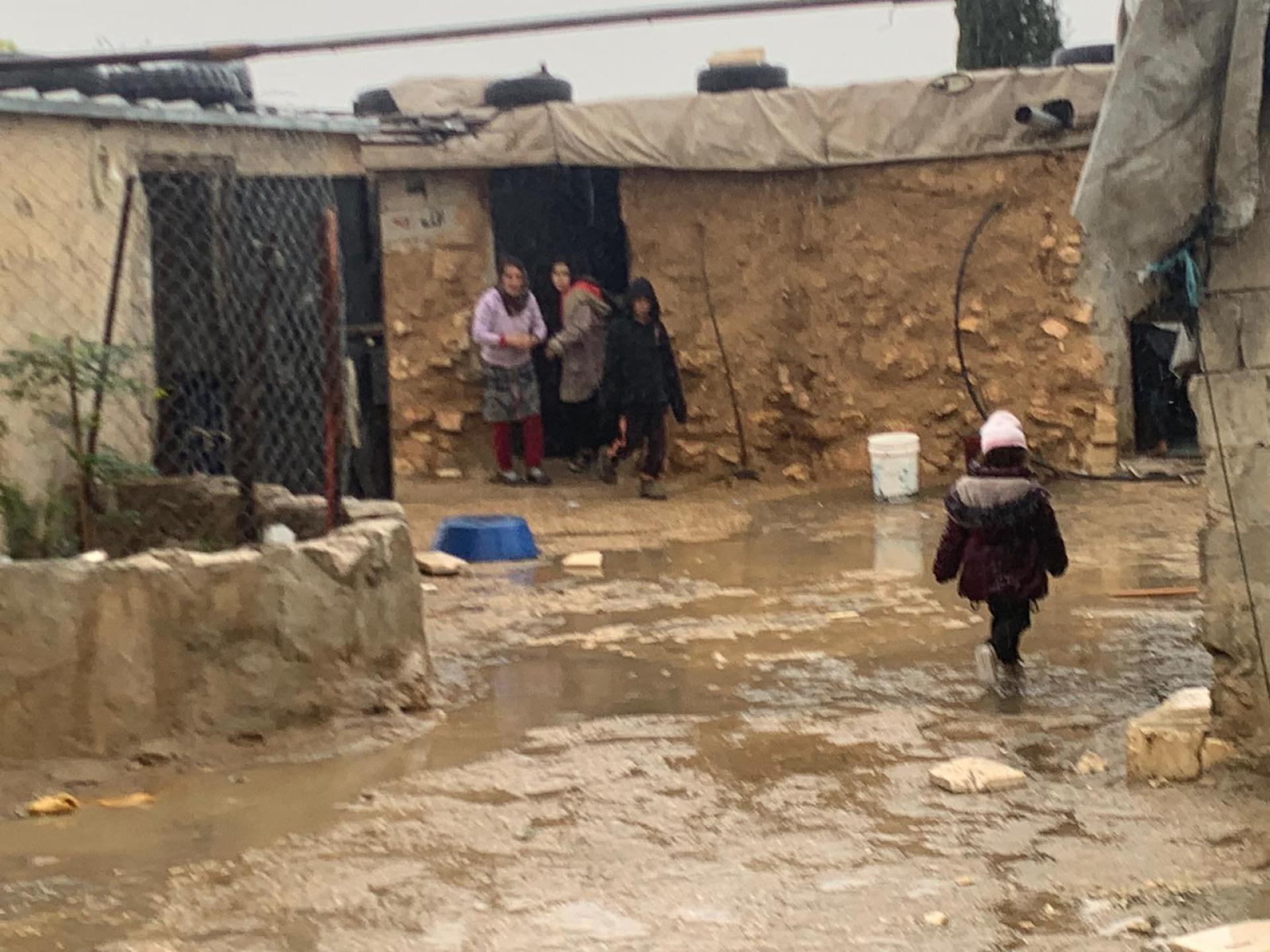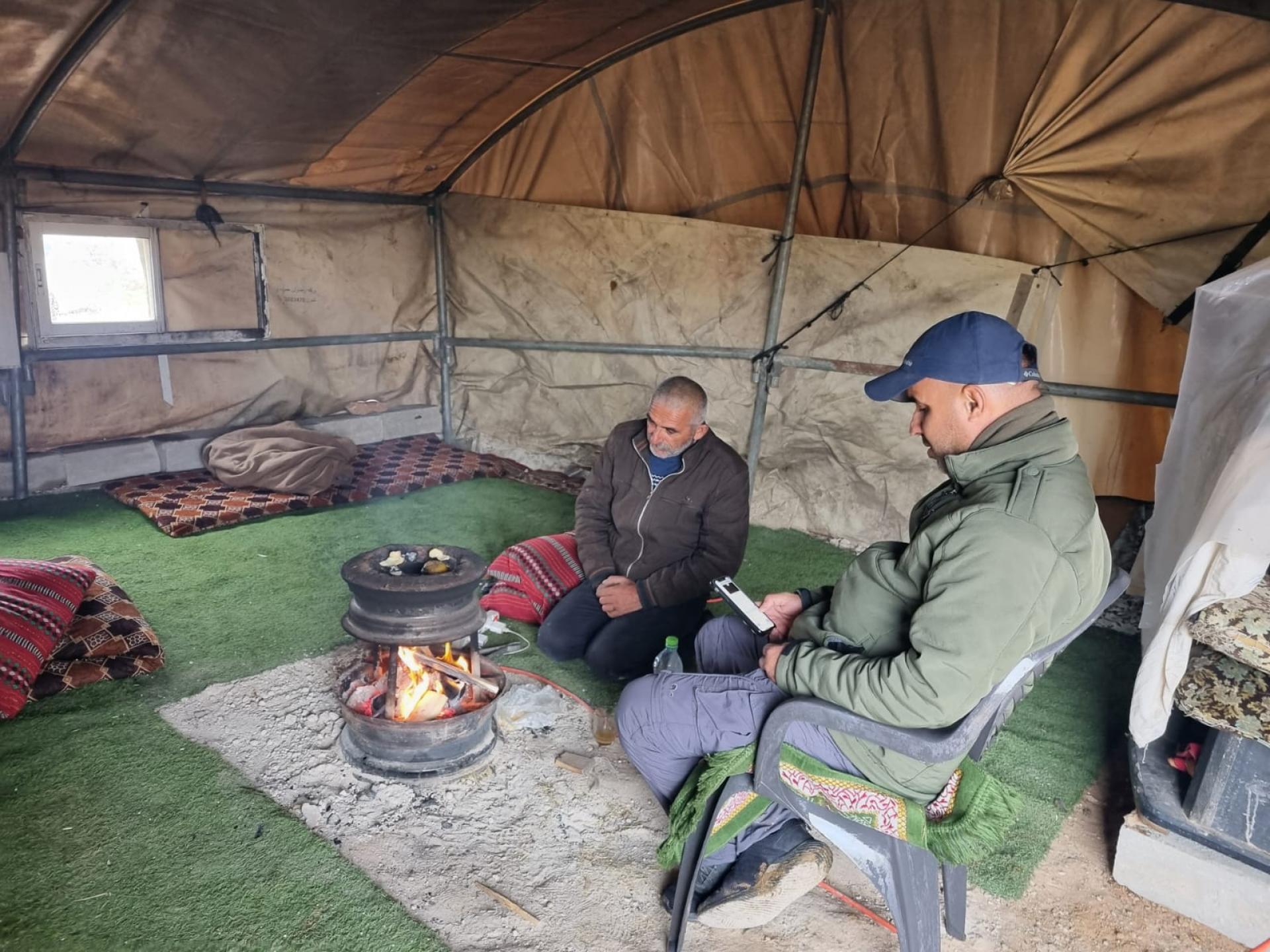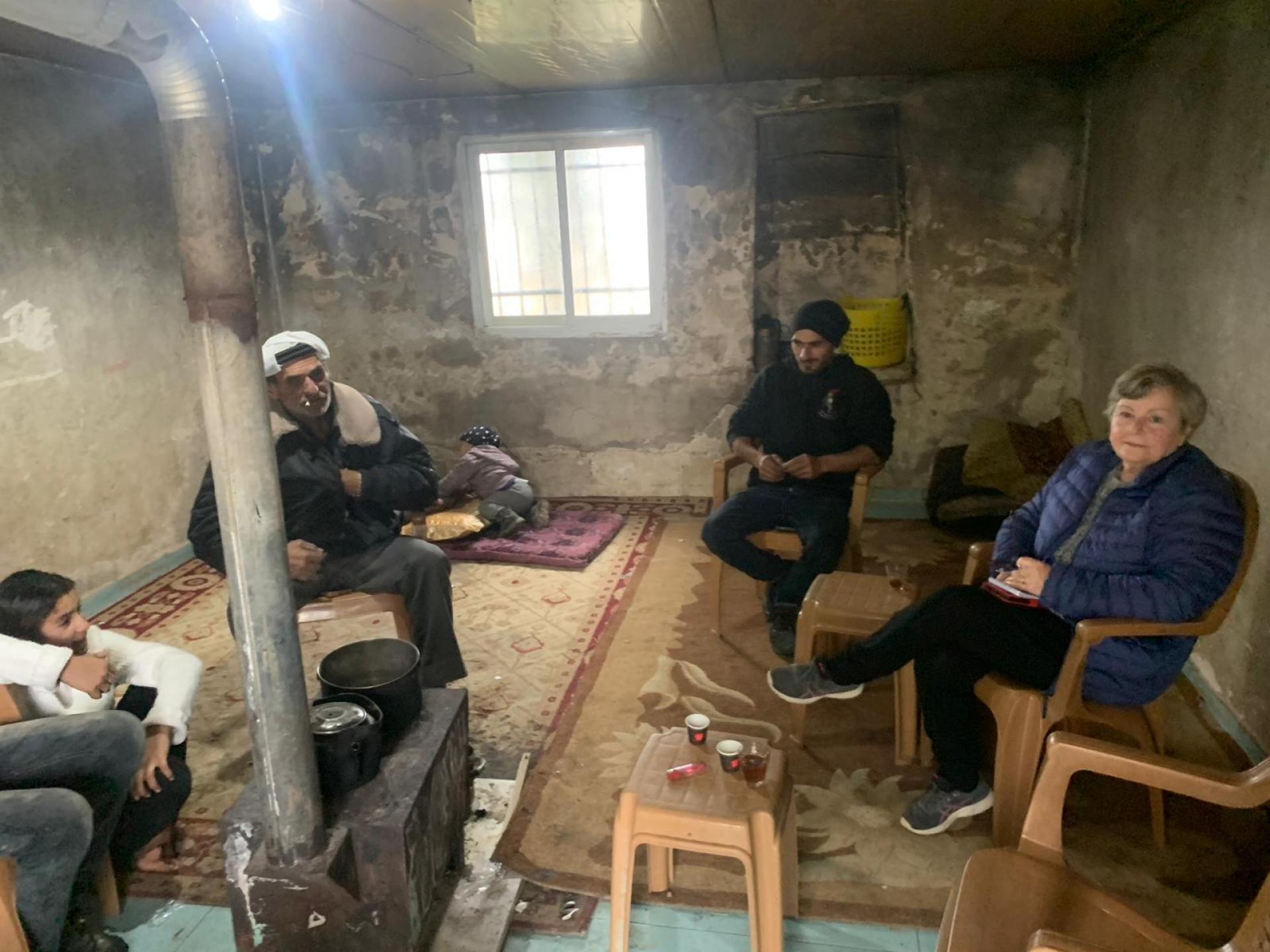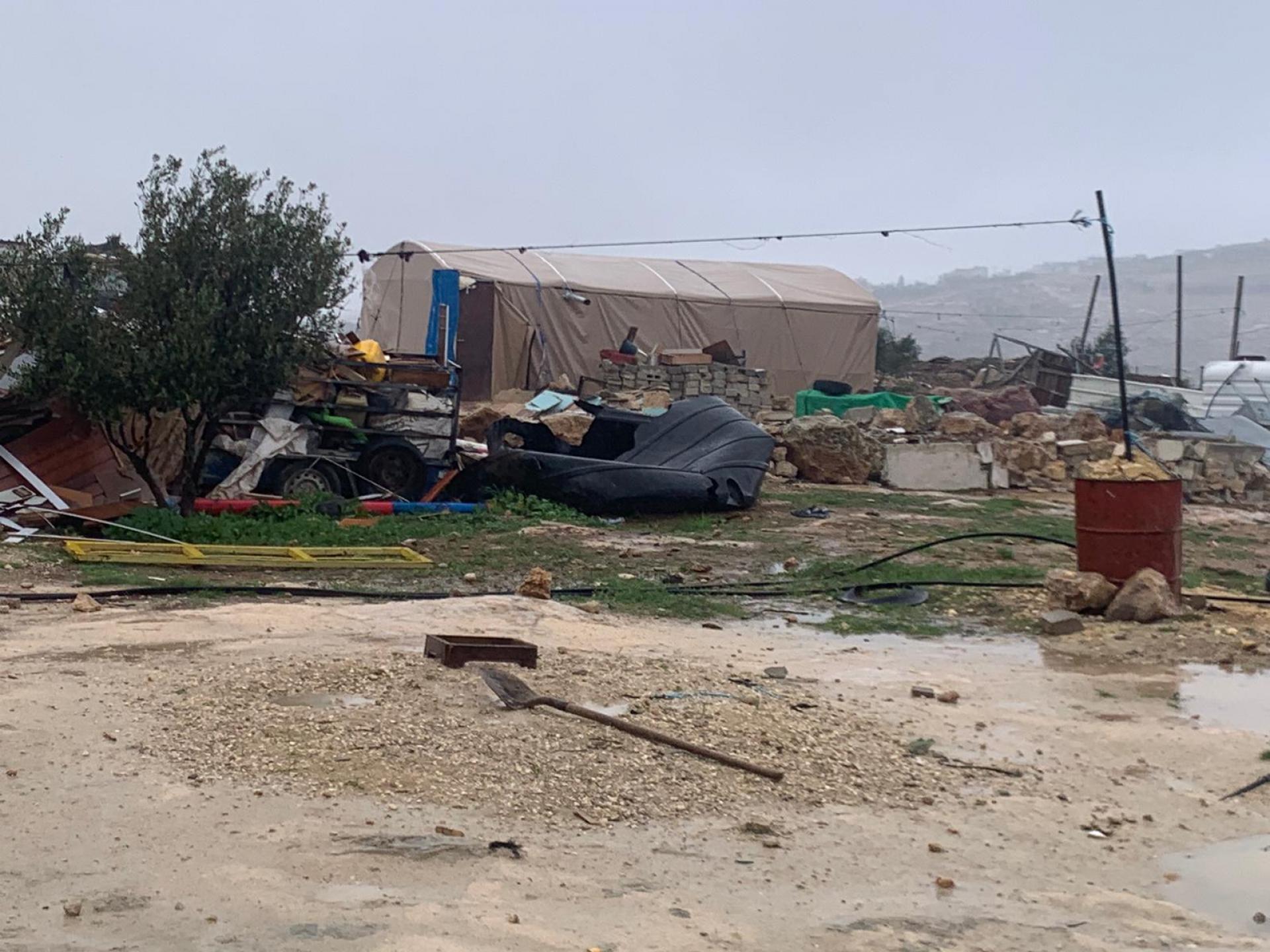South Hebron Hills – the supervisor of the Israel Nature and Parks Authority is unauthorized toconfisce a tractor

Today is particularly rainy, and road 60 is almost empty of vehicles.
At the junction of Meitar, a menorah is displayed and next to it is the flag of Israel.
Everyone will know who the "lords of the lamp” are here.
On road 317 we turn to the village of Sha'ab al-Butum. The good road is blocked like in all the villages since October 7th.
In front of us comes a vehicle in which we recognize the great Ehud and Erela from the Villlages Group. We exchange words about the terrible situation and share our feelings.
Later, a van with two employees of Doctors Without Borders stops next to us. They come to the villages and help in whatever way they can. This time they brought basic foodstuffs, such as canned foods and oil. They live in Hebron.
Our visit begins with Yishak Jabarin's shig. Everything is flooded around because of torrential rain. Their sons and children also gather around the warm-up.
Yishak says that two weeks ago, Yedidia Talia, an inspector of the Nature Reserve Authority in the area, from the infamous Talia farm, dragged the tractor used by the whole family with his van.
Yishak heard the policemen and the DCO officers told Yedidia that he was not allowed to do that. He did not respond to them, and only after 3 days, they received assistance from Akram from the DCO, who accompanied them until they reached the village.
Since there is a fear that the tractor will be taken, they cultivate the little area they still have left (the settlers evict the Palestinians from their lands) with the help of donkeys, for 3 days instead of one day using the tractor.
The other day, Yishak says, the border guards came to take pictures of Issa's house, which they destroyed about 3 weeks ago, and threatened him that if he builds again, the house will be destroyed.
From there we continued to visit Laila, Muhammad and their children. As I recall, since the settlers destroyed the interior of the house and the yard, tore water pipes and solar panels, they live in the room they received from Ibrahim Jabarin. I ask what about their house and they say that settlers took 2 water tanks from them.
Muhammad goes to the Kiryat Arba police station to report every action of the settlers.
We know it was recorded, and that's where it ends.
Today the children went to school, and the adults are sitting around the heating (by wood) and since there is no work, they are all there.
Ibrahim, who destroyed his house for the third time when we were there last time, just minutes after the demolition, invites us to the tent he set up, where he lives with his wife.
Winter and cold penetrates, but they will not move from there.




